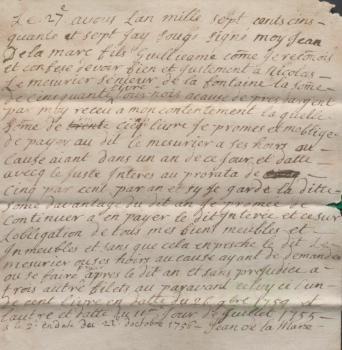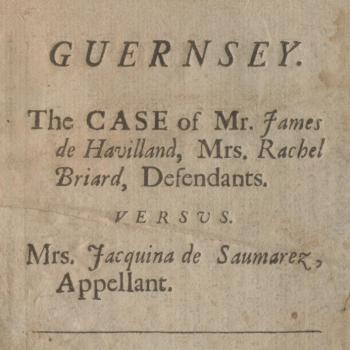Engagement of Thomas Le Marchant and Marie Marthe Mauger, 1740
11th November 2015
Marie's father Charles Mauger settles money upon her, half of which is to be given to her husband the day after their marriage. This money is to be managed by her new husband, Thomas Le Marchant, for her benefit only, and will always remain hers and will pass to her direct heirs. The remaining money will be given to her, or to her direct heirs, after her father's death, once again to be invested on her and her family's behalf. This was one of the ways that Guernsey families retained their interests in their own estate and properties, and which enabled women to have rights to their own property after their husband's death. A fiancé could himself settle monies or property on his intended upon their engagment, in the form of gages, or pledges, hers to keep if they married, or a douaire, or dowry, which on the event of his death she could claim from his estate.



